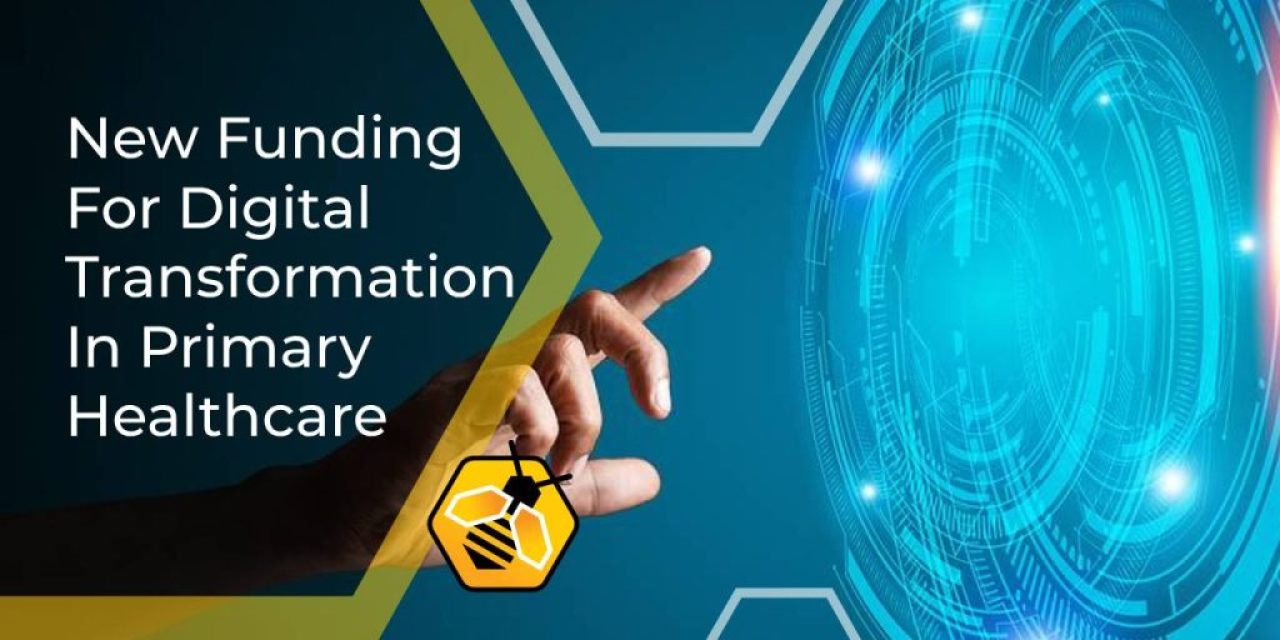The government has announced that £102 million in funding will be made available to over 1,000 GP surgeries in England to expand capacity and upgrade facilities. This will include upgrading equipment and technology to support more effective digital transformation in the health and social care sector.
The NHS Confederation reports that this will be the biggest investment in primary care infrastructure for five years. Here’s a look at how our specialist IT support for healthcare services can help your GP surgery to improve standards of patient care and future-proof operations.
What are the current challenges facing primary healthcare?
The myriad challenges facing the NHS are well documented: rising patient demand, outdated legacy IT systems, smaller budgets and stretched resources.
The new funding is targeted at bringing a selection of GP surgeries into the 21st century, with modern purposely designed facilities, improving waiting times and reducing the “8am scramble” for appointments.
In the Department of Health and Social Care press release, director of the NHS Confederation’s primary care network, Ruth Rankine said: “GPs and their teams welcome this vital capital funding to modernise premises to deliver high-quality care, closer to home and fit for the 21st century.”
“Primary care is the front door of the health service and has been managing increasing demand, yet a historic lack of capital funding in estates has been one of the biggest barriers to improving productivity and creating buildings suitable for modern health care – with a fifth of GP estates pre-dating the NHS and half more than 30 years old.”
“If we are serious about shifting care from hospital to community, from sickness to prevention, and from analogue to digital, then sustained investment in primary and community estates, equipment and technology is vital.”
Why the transformation from analogue to digital matters
Despite urgent efforts, large sections of the NHS still rely on fragmented analogue systems to manage bookings, patient records and more. This means that they are more vulnerable to security breaches and human error, and are nowhere as safe and efficient as they could be in today’s rapidly advancing digital world.
An upgraded digital system can help to streamline workflows, reducing administrative burdens on staff and freeing up more time for patient care. It will also provide a much more secure, scalable and centralised data system for improved compliance and continuity of care.
It also widens remote access to healthcare, and paves the way for more patient choice and flexibility in the way that people are cared for when they are seriously ill or at the end of life stage.
How managed IT service providers can help
Upgrading IT systems means a lot more than just buying new hardware and software: it requires strategic planning and expertise to ensure that the infrastructure is secure, using the most appropriate tools for the job, and compliant with NHS Digital Standards and GDPR.
A managed service provider (MSP) will work with practice managers or in-house IT staff to audit the current system and identify any weakness and upgrade opportunities. We can oversee the implementation of secure cloud infrastructure and communication tools, and assist with the procurement of sector-specific software and management tools.
We will also recommend and install the most robust and up to date cybersecurity systems to protect patient data, and if necessary, assist with the education and training of staff in security best practices.
All of our IT services are supported by a 24/7 helpdesk, and we take a proactive approach to identifying and resolving any glitches before they escalate into bigger problems. This will minimise any disruption to patient services, helping to raise standards of patient care delivery and drive down waiting times.
If you are considering using government funding to upgrade a healthcare facility such as a GP surgery or hospice, our experienced team is ready to provide first class IT support. Contact is today for a free no obligation quote.




